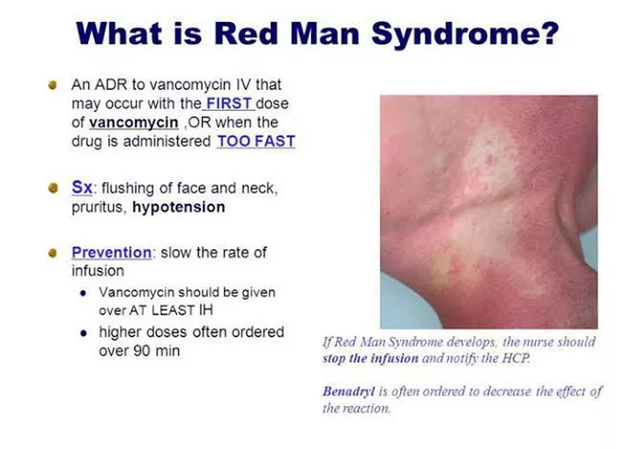Your 25-year-old female patient has been prescribed ciprofloxacin (Cipro) for a respiratory infection. Patient teaching includes which of the following?
Wear high-top shoes to avoid tendon rupture.
Use a barrier method of birth control (condoms) during antibiotic use.
Do not use any bronchodilator inhalers while taking the drug.
Stop the medication as soon as you feel better.
The Correct Answer is B
A. Wear high-top shoes to avoid tendon rupture:
This statement is incorrect. Tendon rupture is a known side effect of fluoroquinolone antibiotics like ciprofloxacin, especially in certain populations. However, wearing high-top shoes does not prevent this. Patients should be educated about the signs of tendon pain, swelling, or inflammation and should be advised to stop the medication and contact their healthcare provider if they experience such symptoms.
B. Use a barrier method of birth control (condoms) during antibiotic use:
This statement is partially correct. Antibiotics like ciprofloxacin do not interfere with the efficacy of hormonal birth control methods like pills, patches, or injections. However, it's advisable to use a barrier method like condoms as an additional form of contraception while taking antibiotics. This is to prevent potential interactions and ensure maximum contraceptive effectiveness.
C. Do not use any bronchodilator inhalers while taking the drug:
This statement is incorrect. Ciprofloxacin does not interact negatively with bronchodilator inhalers. Patients can continue using their prescribed inhalers as directed by their healthcare provider, especially if they are being used for conditions like asthma or chronic obstructive pulmonary disease (COPD).
D. Stop the medication as soon as you feel better:
This statement is incorrect. It's crucial for patients to complete the entire course of antibiotics as prescribed, even if they start feeling better before the course is finished. Stopping antibiotics prematurely can lead to incomplete eradication of the infection, potentially allowing the bacteria to develop resistance and cause a recurrence of the illness.
Nursing Test Bank
Naxlex Comprehensive Predictor Exams
Related Questions
Correct Answer is ["B","D"]
Explanation
A. Hypertension: Anaphylaxis often leads to a rapid drop in blood pressure (hypotension) rather than hypertension. Hypotension is a more common symptom because of the severe vasodilation that occurs during anaphylactic reactions.
B. Angioedema: Yes, angioedema is a common clinical manifestation of anaphylaxis. Angioedema involves swelling of the deeper layers of the skin, often around the eyes and lips. It can also affect the throat, which can be life-threatening due to airway obstruction.
C. Petechiae: Petechiae are small red or purple spots that appear on the skin and are caused by bleeding into the skin's tissues. They are not a typical manifestation of anaphylaxis.
D. Bronchospasm: Yes, bronchospasm is a hallmark clinical manifestation of anaphylaxis. It involves the sudden constriction of the airways, leading to difficulty in breathing and wheezing.

Correct Answer is D
Explanation
Allergic reaction: An allergic reaction can manifest in various ways, including rash, itching, and difficulty breathing. However, the specific symptoms described, along with the context of vancomycin administration, point to red man syndrome in this case.
Rhabdomyolysis: Rhabdomyolysis is a condition where damaged muscle tissue breaks down and releases a protein called myoglobin into the bloodstream. This can cause kidney damage, but the symptoms described do not align with rhabdomyolysis.
Stevens-Johnson syndrome: Stevens-Johnson syndrome is a severe skin reaction that can cause skin and mucous membranes to blister, peel, and can be life-threatening. While it can present with rash and other skin symptoms, the symptoms mentioned in the scenario are more characteristic of red man syndrome.
Red man syndrome: As mentioned earlier, red man syndrome is an allergic reaction to vancomycin characterized by flushing, rash, pruritus, and urticaria (hives), along with rapid heart rate and low blood pressure. It is specific to vancomycin and can be prevented or minimized by slowing down the infusion rate and administering antihistamines.

Whether you are a student looking to ace your exams or a practicing nurse seeking to enhance your expertise , our nursing education contents will empower you with the confidence and competence to make a difference in the lives of patients and become a respected leader in the healthcare field.
Visit Naxlex, invest in your future and unlock endless possibilities with our unparalleled nursing education contents today
Report Wrong Answer on the Current Question
Do you disagree with the answer? If yes, what is your expected answer? Explain.
Kindly be descriptive with the issue you are facing.
